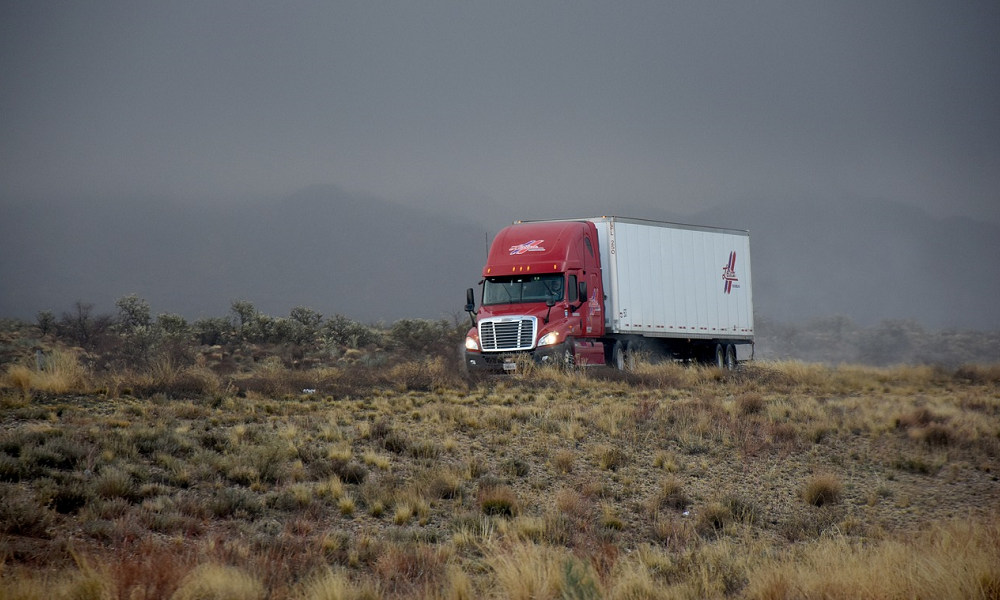Reviews
The Overlooked Key to Trucking Efficiency: Why Parking Matters More Than You Think

In the vast and complex world of logistics, much attention is given to warehouses, supply chains, and route optimization. But there’s a quiet, often overlooked piece of the puzzle that directly affects everything from delivery times to driver well-being—semi truck parking. Though it might seem like a minor concern on the surface, where a truck driver can park has ripple effects throughout the transportation industry and beyond.
With trucking moving more than 70% of the nation’s freight by weight, parking becomes a logistical necessity, not a luxury. And while the public rarely thinks about where 18-wheelers spend the night, this issue is tightly connected to safety, efficiency, and the daily realities of life on the road.
More Than Just a Spot to Sleep
Truck drivers operate under strict regulations that limit how many hours they can drive before resting, known as Hours of Service (HOS) rules. Once a driver’s time is up, they’re required by law to stop—even if there’s no legal parking spot available. This creates a stressful, time-sensitive situation where drivers must either park early, losing valuable drive time, or risk fines and safety violations by searching longer for a safe location.
The scarcity of semi truck parking has created real consequences. Drivers often end up resting on highway shoulders, abandoned lots, or even residential streets. Not only is this unsafe, it can lead to conflict with local communities and increases the risk of accidents. Beyond that, these conditions wear on the health and morale of truckers who already operate under tough working conditions.
Philadelphia Truck Parking: A Case Study in Urban Logistics
Urban centers like Philadelphia illustrate the parking dilemma in a particularly stark way. As a key link in the northeastern U.S. supply chain—with access to ports, rail, and highways—Philadelphia sees substantial truck traffic daily. Yet the city’s infrastructure hasn’t kept pace with the growing demands of freight transportation.
The city’s tight geography, dense population, and old road systems present major hurdles for accommodating modern trucking needs. Legal Philadelphia truck parking is limited, and many truckers are forced to leave the city center in search of safer, legal spaces. This often adds time and fuel costs to their routes, not to mention additional stress.
In industrial areas near Philadelphia’s outskirts, parking spaces are in high demand and low supply. Facilities that do exist are often full by early evening. Some smaller trucking companies and independent drivers rely on informal networks and apps to find available spots, but the inconsistency is a daily headache. Drivers working through Philadelphia frequently report that parking is one of the biggest challenges they face.
Residents, too, feel the pressure. Illegally parked trucks bring complaints about noise, pollution, and blocked roadways, leading city officials to crack down—but without offering viable alternatives. Efforts are underway to improve this situation, but development is slow, largely due to zoning issues, real estate prices, and lack of coordinated investment.
A Challenge with Economic Consequences
At first glance, truck parking might not seem like a major economic factor. But when considered in terms of delays, lost productivity, and inefficiencies, its impact becomes clearer.
When drivers waste time finding parking or park early to avoid running out of time, deliveries are delayed. That affects retailers, manufacturers, and ultimately, consumers. It also costs trucking companies money—both in lost billable miles and additional fuel expenses.
Moreover, the health of drivers is directly linked to the quality and availability of parking. Resting in unregulated or unsafe areas means fewer amenities, lower sleep quality, and more stress. Over time, this leads to burnout and higher turnover in an industry already struggling with labor shortages.
What Can Be Done?
There’s no one-size-fits-all solution, but several strategies are showing promise. Technology is helping drivers locate available spots in real time, reducing wasted miles and stress. Apps and GPS tools are becoming more sophisticated and widely used in the industry.
At the same time, public-private partnerships are beginning to emerge, exploring ways to expand parking availability near freight hubs like Philadelphia. These include repurposing underutilized land and incentivizing the development of secure parking lots with facilities for drivers. Government involvement will be key, especially in adjusting zoning regulations and offering funding or tax breaks for projects that support freight infrastructure.
More broadly, municipalities and logistics companies need to view truck parking not as an afterthought, but as a critical component of efficient transportation networks. Without it, everything from supply chain timing to road safety is compromised.
Conclusion
Semi truck parking may not make headlines, but it’s a central piece of the logistics puzzle. Its impact is felt across delivery schedules, driver health, fuel consumption, and public safety. In cities like Philadelphia, the lack of accessible parking isn’t just inconvenient—it’s a growing obstacle to efficient freight movement and community harmony.
As freight volumes continue to rise, the need for coordinated, thoughtful solutions will only grow. Addressing the truck parking shortage means supporting the very people who keep our shelves stocked and our economy moving—one parking space at a time.

-

 World1 week ago
World1 week agoEthiopian volcano erupts for first time in thousands of years
-

 Health2 days ago
Health2 days ago8 kittens die of H5N1 bird flu in the Netherlands
-

 Legal7 days ago
Legal7 days agoUtah Amber Alert: Jessika Francisco abducted by sex offender in Ogden
-

 US News6 days ago
US News6 days agoExplosion destroys home in Oakland, Maine; at least 1 injured
-

 Health7 days ago
Health7 days agoMexico’s September human bird flu case confirmed as H5N2
-

 Legal3 days ago
Legal3 days ago15 people shot, 4 killed, at birthday party in Stockton, California
-

 World7 days ago
World7 days agoWoman killed, man seriously injured in shark attack on Australia’s NSW coast
-

 Health6 days ago
Health6 days agoMarburg outbreak in Ethiopia rises to 12 cases and 8 deaths




